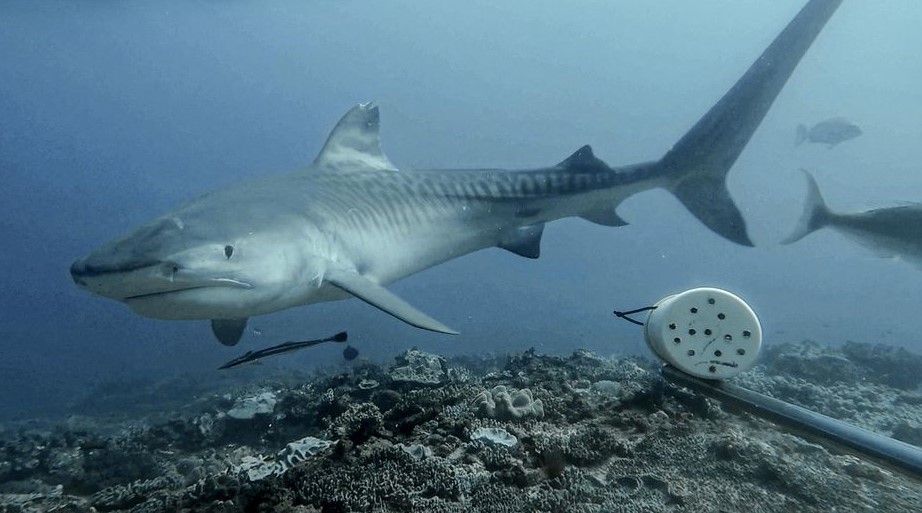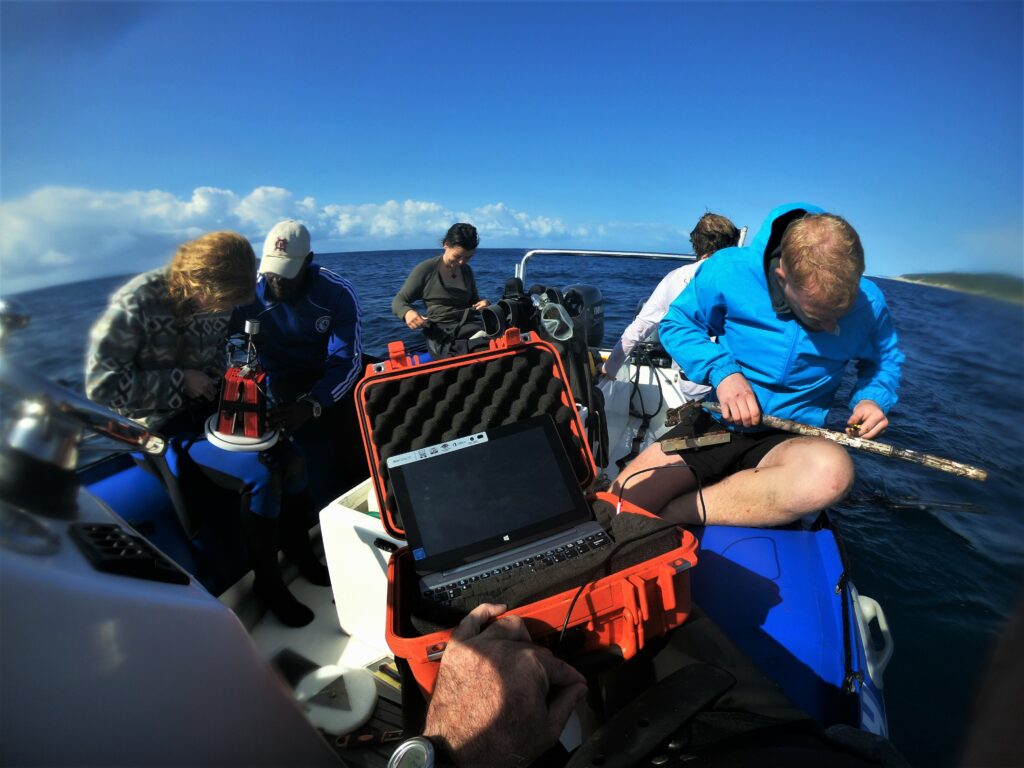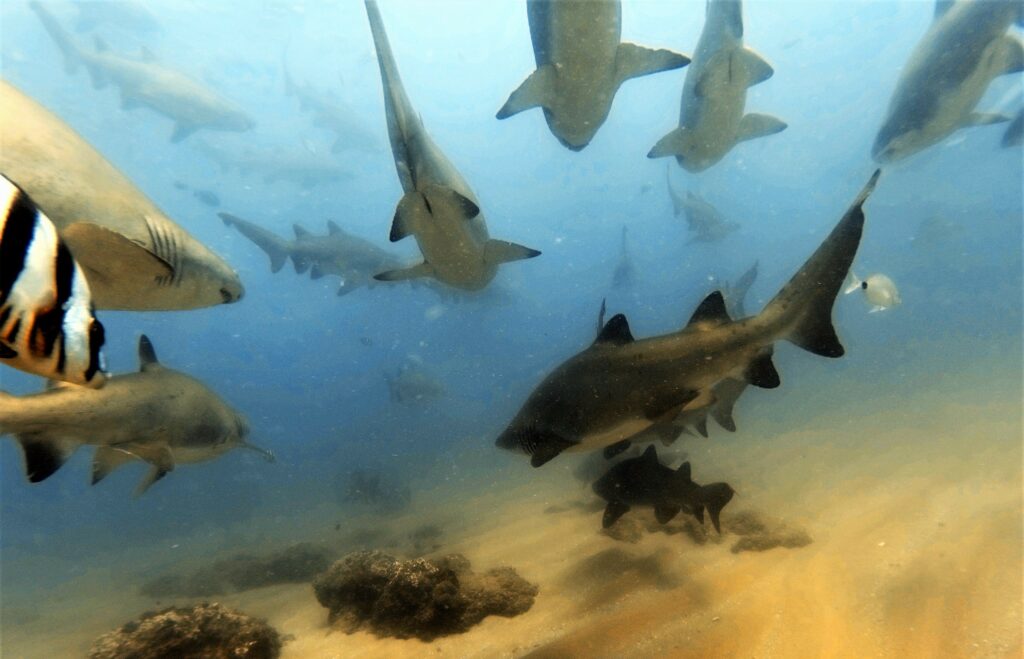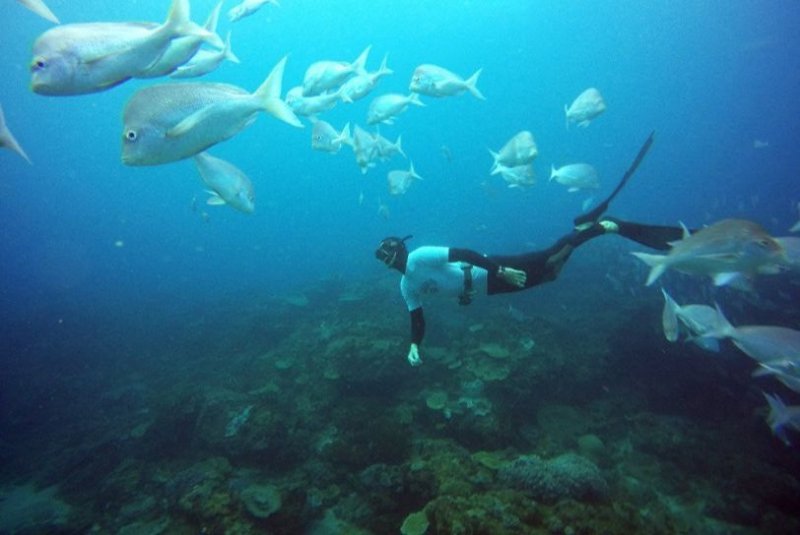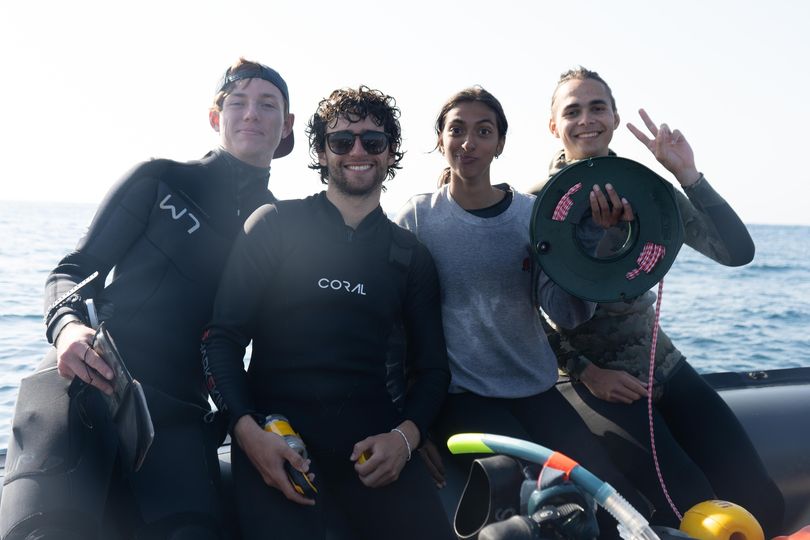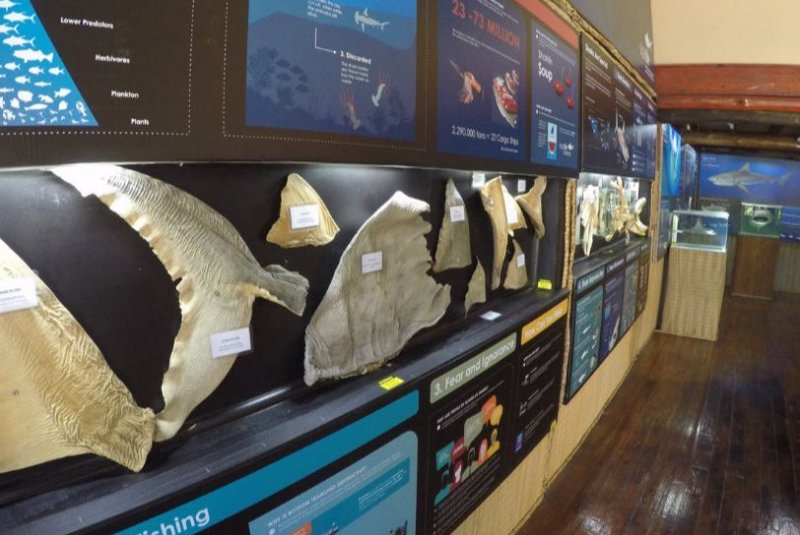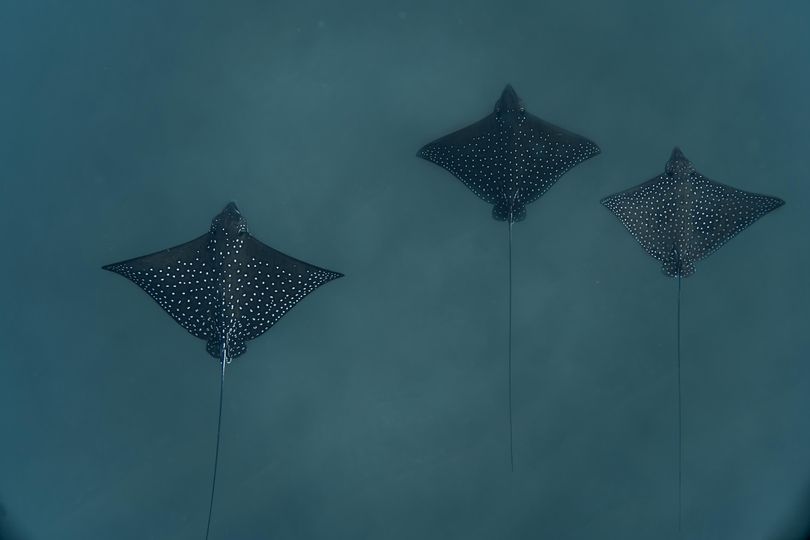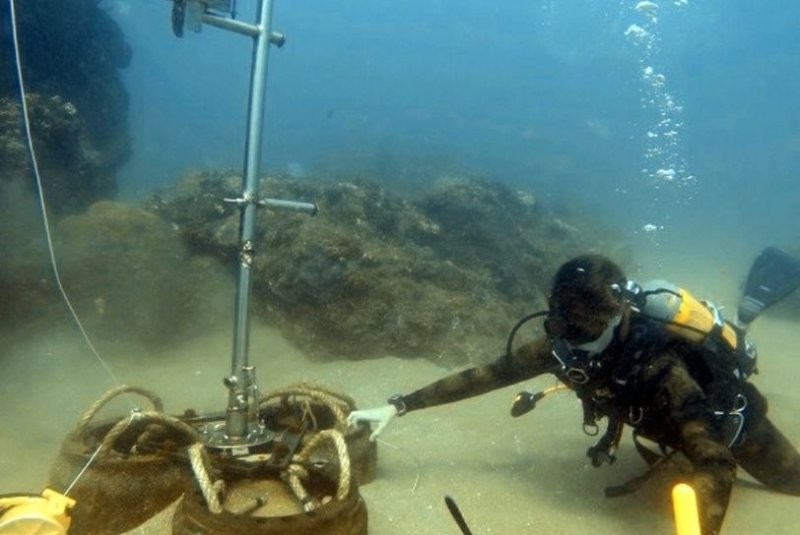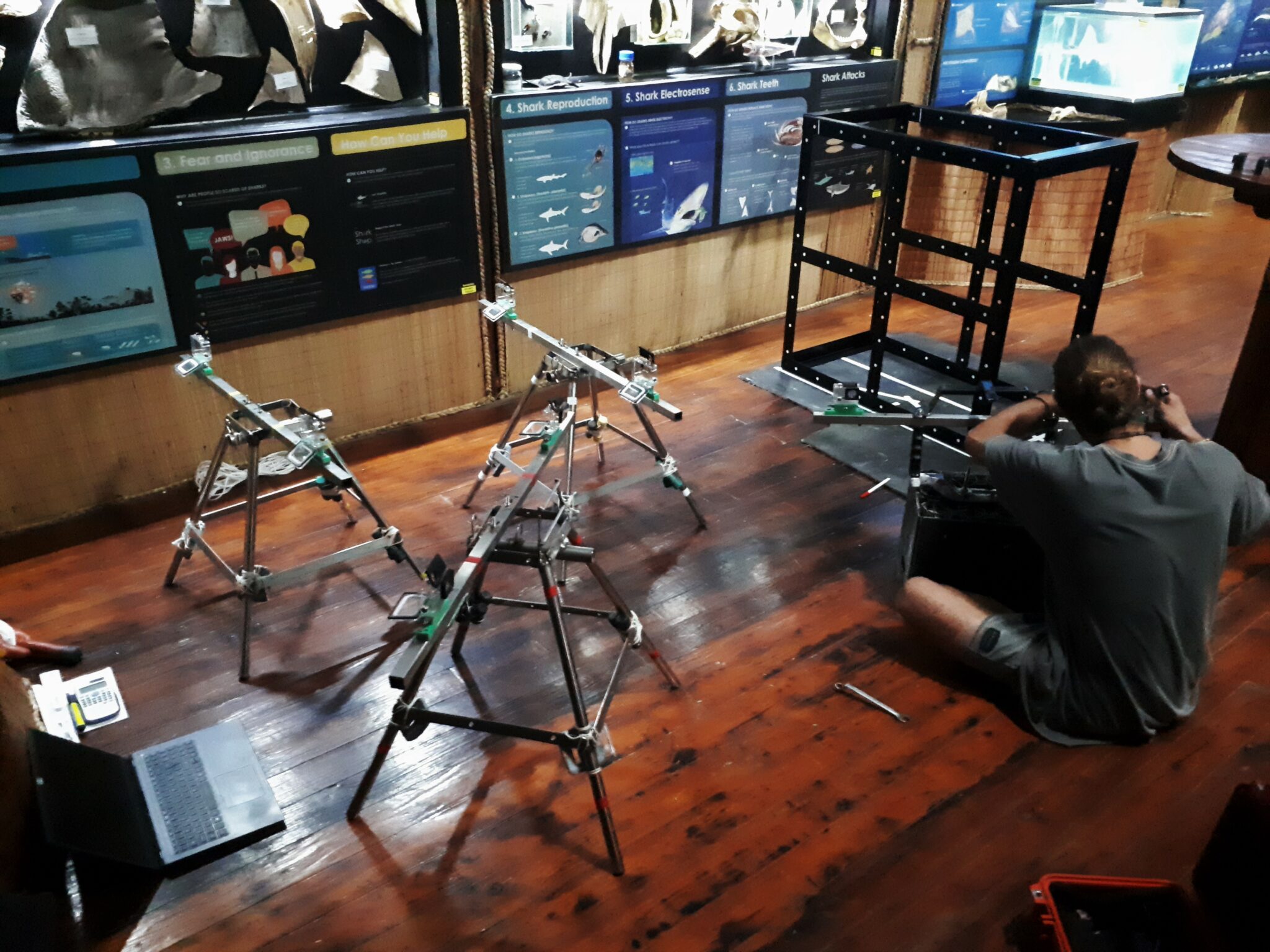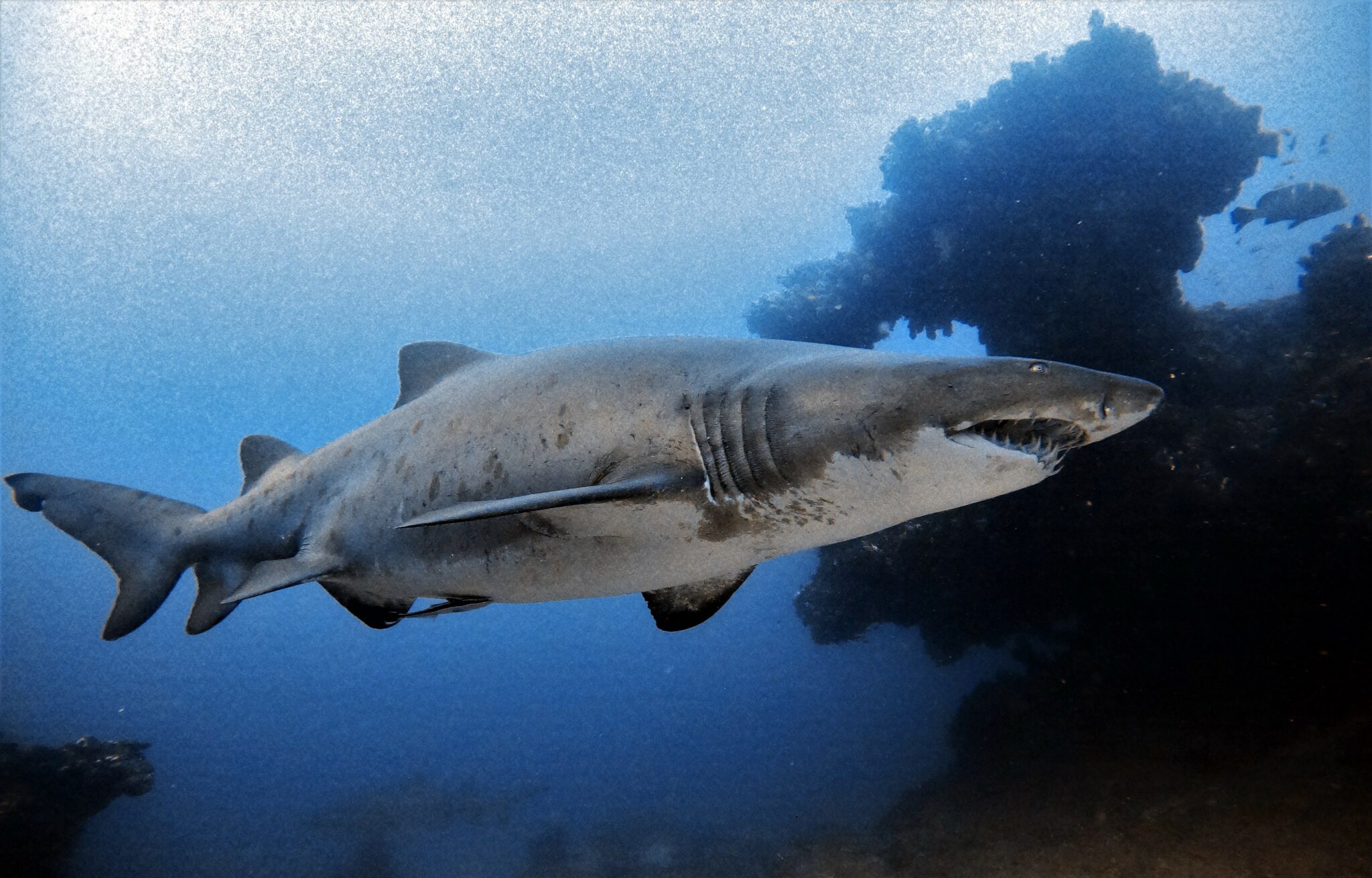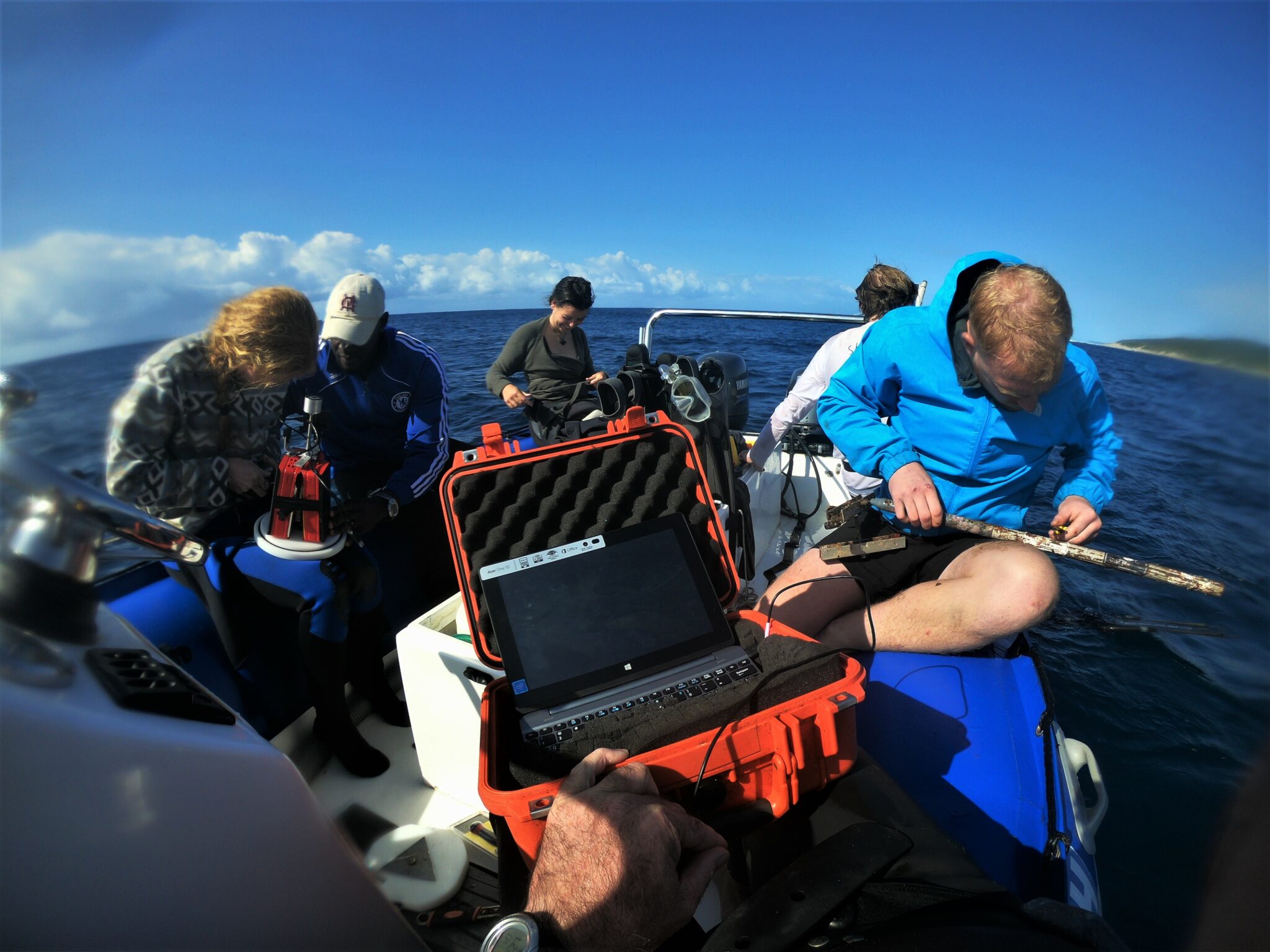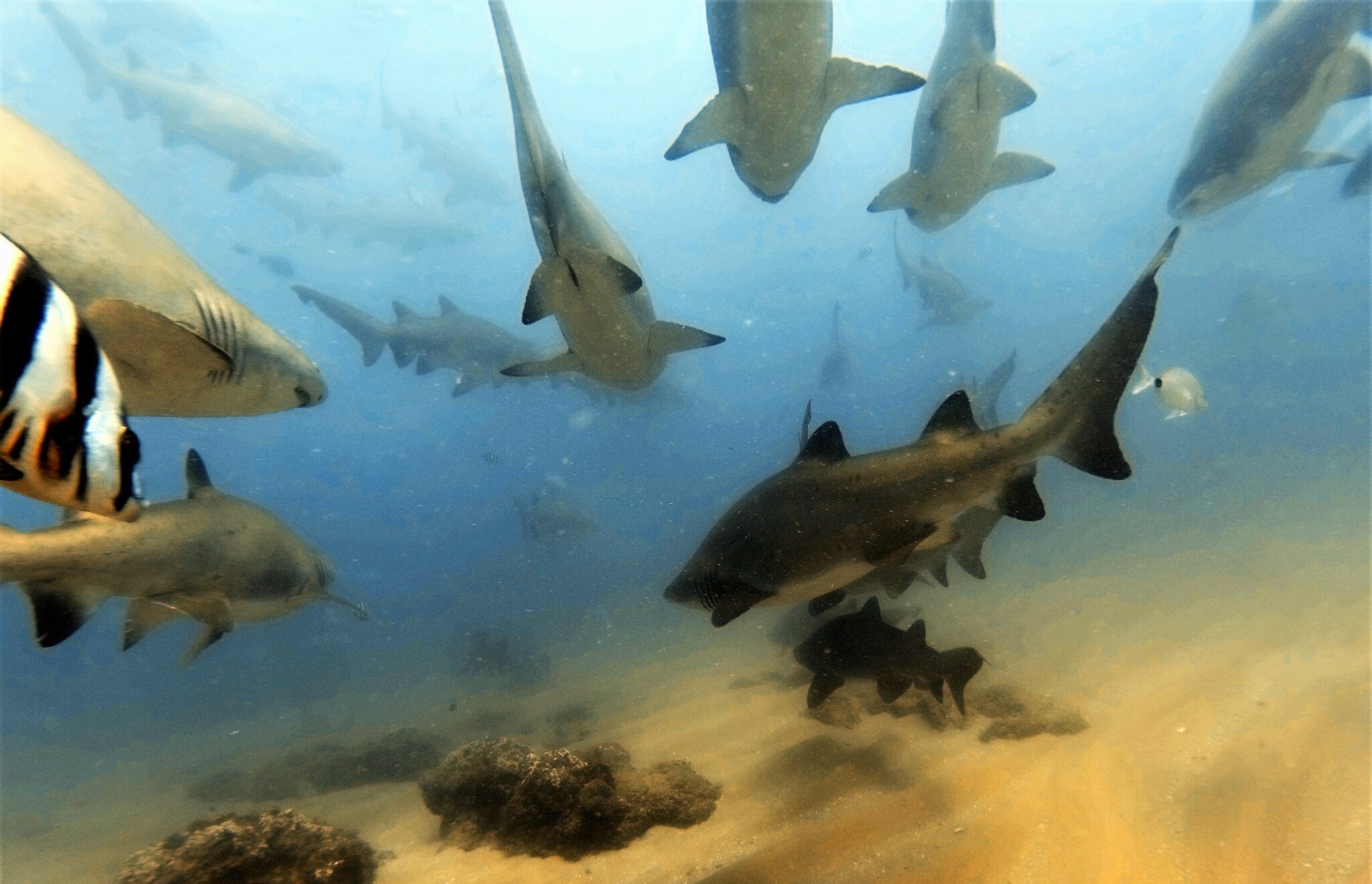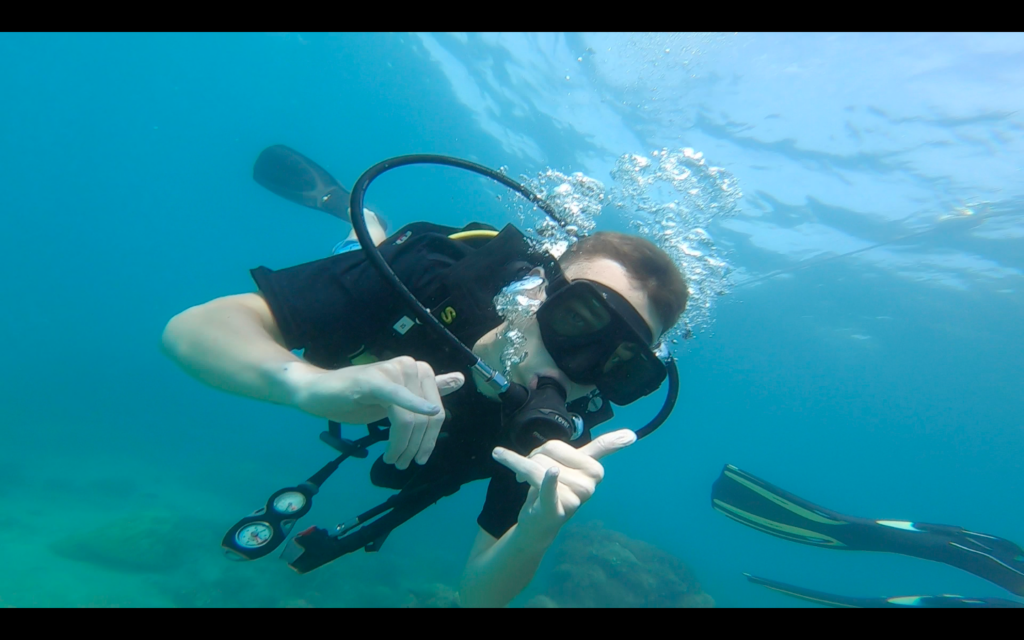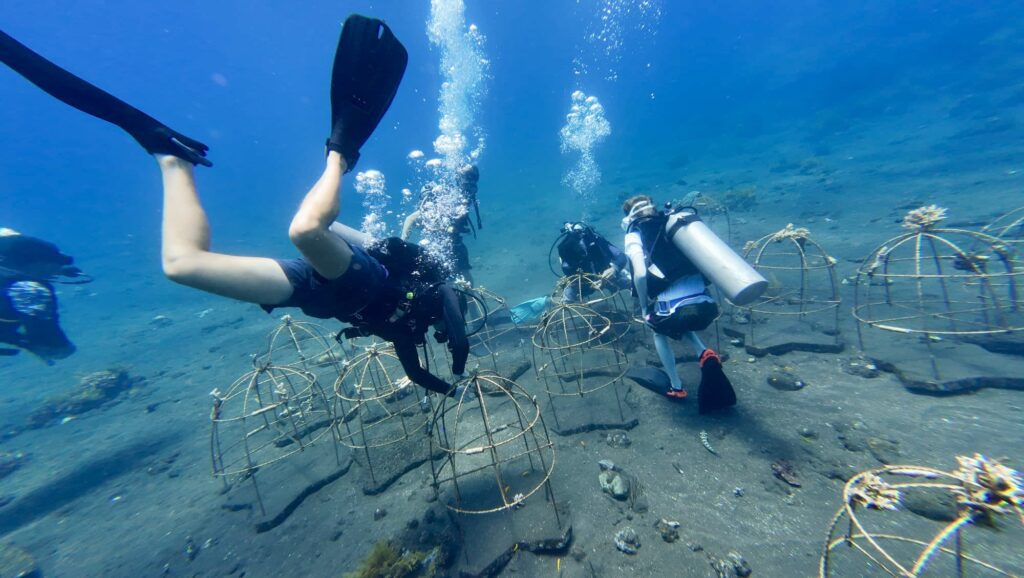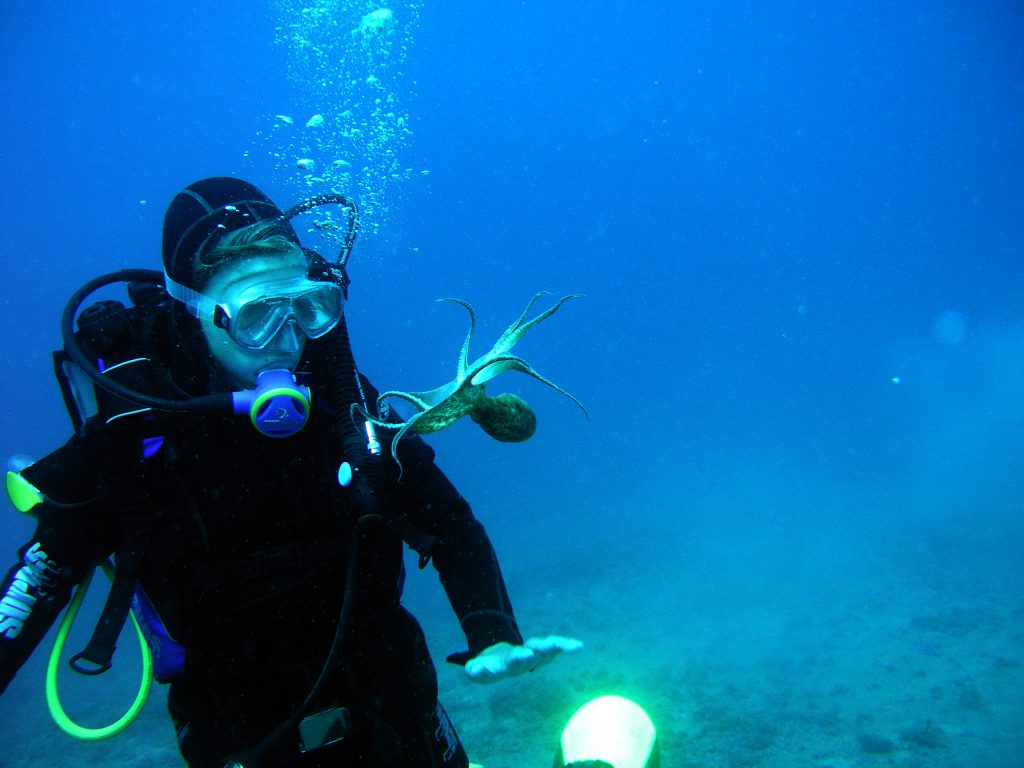Do you love scuba diving and sharks? Get involved in a marine conservation project in a UNESCO-listed site in South Africa! All missions in South Africa here
Marine conservation in a UNESCO-listed area
Our partner Hamba Africa will place you in a shark and marine ecosystem research center in South Africa, in the iSimangaliso wetland, a UNESCO World Heritage Site. The program focuses on the study of marine species, including sharks, rays and skates. Observations are made by scuba diving, snorkeling and remote sensing.
Here are the different themes on which the center is working
- Shark and ray research: sharks and rays are key species that influence other species in the ecosystem. Understanding these animals is essential for the protection of marine ecosystems.
- Turtle reproduction and monitoring : several species of turtle lay their eggs on the beaches of tropical South Africa.
- Coral reef survey and mapping: the coral reefs of South Africa's Sodwana region are key areas for biodiversity. As well as providing a nesting ground for the region's various shark species, they are also home to numerous other species, some of which are critically endangered. The research center maps and studies the reef. It also studies the health of the reef from a sonic point of view.
- Predator mortality monitoring: the reserve is home to predators such as lions, leopards, hyenas, cheetahs and many more!
- Public education: the research center has a laboratory and museum open to the public.
Volunteers are trained in scientific diving
You'll take part in the project from Monday to Friday. You'll dive 3 or 4 times a week to observe underwater fauna.
In the morning, as part of a team, you'll prepare the diving equipment and board a boat to reach the dive sites: coral reefs; shark breeding grounds; migration points...
You'll collect data by observing sharks or other marine species you encounter.
Supervised by professionals, you'll be trained in scientific diving. When you're not at sea, you'll support the research and analysis underway at the research center by taking part in laboratory work, preparing equipment or even analyzing results and conclusions.
Shark diving and safety
It's normal to be a little anxious the first time you go swimming with a shark. Fortunately, the long-toothed sharks that breed in the area don't eat during mating or pregnancy. You'll develop your skills and confidence as you swim with these animals in complete safety. You record information such as breeding site, individual identification, number of individuals. This information will contribute to the creation of a database on sharks in the region, for scientific and governmental purposes.
Dates
From 2 to 12 weeks, all year round. Weekends are best.
Rates
- 2 weeks: 2100 £ or approximately 2490 €.
- 4 weeks: 2915 £ or approximately 3457 €.
- 6 weeks: 3530 £ or approximately 4186 €.
- 8 weeks: 4110 £ or approximately 4874 €.
- 10 weeks: 4660 £ or approximately 5527 €.
- 12 weeks: 5450 £ or approximately 6464 €.
Diving courses
- 4 days PADI Open Water - £285 (approx. €338)
- 3 days PADI Advanced Open Water - £285 (approx. €338)
Included in price
- Housing
- Airport transfers
- Supervision and 3 to 4 dives per week
- Diving equipment
- Park entrance
- Wifi
- Local support in case of problems
Not included in price
- Flights
- VisaVaccinations Travel insurance
- Food (kitchen and shopping facilities available)
- Diving courses are extra
- From 2 to 12 weeks, all year round
- From age 18
- Good physical condition (daily swimming and diving)
- English: intermediate or conversational level
- Vaccines for travel to South Africa
- Official documents for travel to South Africa
- Travel insurance
- While a university education or professional skills and experience are helpful to projects, they are not necessary. Our only requirement is that you have a passion for wildlife, conservation and community development!
Location
The iSimangaliso Wetland Park and UNESCO World Heritage Site are characterized by their varied ecosystems and unique species. Coastal grasslands and wetlands, bays and lagoons, as well as offshore coral reefs, all offer a vast array of biodiversity. The research center is your base camp. It's from here that the ecovolunteers, researchers and dive masters take part in the projects!
Housing
Rooms are equipped with beds, electricity and storage space for personal items. If you have specific needs due to medical or personal circumstances, or if you come as a couple and require a different type of sleeping accommodation, the team will do its best to help you.
The center has its own communal areas. The on-site kitchen is very well equipped with gas stoves, oven, kettles for tea and coffee, microwave, fridge, large freezers, cupboards and storage, as well as drinking water at all times. There are several toilets and showers throughout the center. Hot water is available for showers thanks to an on-site gas boiler, but during the summer months you may prefer to take cold showers.
Laundry
Laundry machines are available.
Wi-Fi available
On weekends, or whenever you're not in the ocean, you can take part in activities in the area, such as visiting nearby nature reserves. You'll be able to see some iconic African species such as elephants and lions. You can also go mountain biking.
All reviews of Hamba Africa
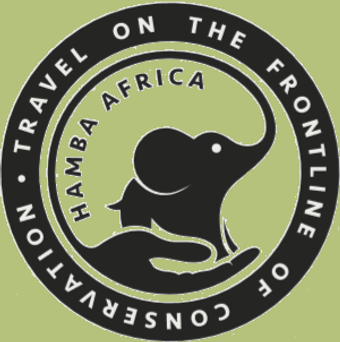
About the partner
Hamba Africa est une organisation qui existe depuis 2017. Elle est détenue et gérée par des guides de safari et des défenseurs de l’environnement. L’organisation partenaire développe ses propres projets de recherches et soutient d’autres organisations à travers l’Afrique du Sud. Leur mission est de mener des recherches sur la faune et la flore en Afrique du Sud en faveur d’un développement durable. A travers les programmes de volontariat, Hamba Africa permet à des volontaires ou des étudiants d’acquérir de nouvelles compétences et connaissances. Les missions Hamba Africa

